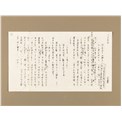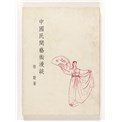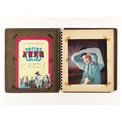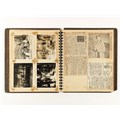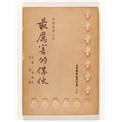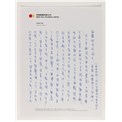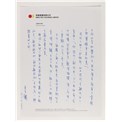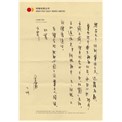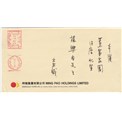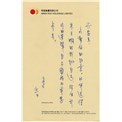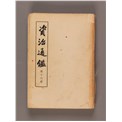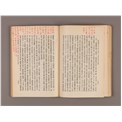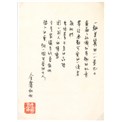-
History & Society
- Education in Pre-war Hong Kong
- History of Taikoo Sugar Refinery
- Hong Kong Products Exhibition
- Local Festivals Around the Year
- Post-war Industries
- Pre-war Industry
- The Hong Kong Jockey Club Archives
- Tin Hau Festival
- Memories We Share: Hong Kong in the 1960s and 1970s
- History in Miniature: The 150th Anniversary of Stamp Issuance in Hong Kong
- A Partnership with the People: KAAA and Post-war Agricultural Hong Kong
- The Oral Legacies (I) - Intangible Cultural Heritage of Hong Kong
- Hong Kong Currency
- Hong Kong, Benevolent City: Tung Wah and the Growth of Chinese Communities
- The Oral Legacies Series II: the Representative List of the Intangible Cultural Heritage of Hong Kong
- Braving the Storm: Hong Kong under Japanese Occupation
- A Century of Fashion: Hong Kong Cheongsam Story
Geography & EnvironmentArt & Culture- Calendar Posters of Kwan Wai-nung
- Festival of Hong Kong
- Ho Sau: Poetic Photography of Daily Life
- Hong Kong Cemetery
- Sketches by Kong Kai-ming
- The Culture of Bamboo Scaffolding
- The Legend of Silk and Wood: A Hong Kong Qin Story
- Journeys of Leung Ping Kwan
- From Soya Bean Milk To Pu'er Tea
- Applauding Hong Kong Pop Legend: Roman Tam
- 他 FASHION 傳奇 EDDIE LAU 她 IMAGE 百變 劉培基
- A Eulogy of Hong Kong Landscape in Painting: The Art of Huang Bore
- Imprint of the Heart: Artistic Journey of Huang Xinbo
- Porcelain and Painting
- A Voice for the Ages, a Master of his Art – A Tribute to Lam Kar Sing
- Memories of Renowned Lyricist: Richard Lam Chun Keung's Manuscripts
- Seal Carving in Lingnan
- Literary Giant - Jin Yong and Louis Cha
Communication & Media- Hong Kong Historical Postcards
- Shaw Brothers’ Movies
- Transcending Space and Time – Early Cinematic Experience of Hong Kong
- Remembrance of the Avant-Garde: Archival Camera Collection
- Down Memory Lane: Movie Theatres of the Olden Days
- 90 Years of Public Service Broadcasting in Hong Kong
- Multifarious Arrays of Weaponry in Hong Kong Cinema
-
History & SocietyGeography & EnvironmentArt & Culture
-
View Oral History RecordsFeatured StoriesAbout Hong Kong Voices
-
Hong Kong MemoryLiterary Giant - Jin Yong and Louis ChaRecently Visited
All Items
Yue Yun is a prose in the form of an autobiography, which narrates fragments from the lives of young Louis Cha and his maidservant Yue Yun. The name of the leading character, Yi Guan, is based on the name Louis Cha was given in his youth, Yi Sun. The first collection of works published by Louis Cha, Ramblings on Chinese Folk Art, is a series of essays that were originally published in New Evening Post. They include commentaries on singing and dancing, film and Peking opera. Louis Cha's attachment to his first film can be seen in his efforts in collecting stills, newspaper clippings etc. about The Peerless Beauty, and compiling them into a scrapbook. Louis Cha's attachment to his first film can be seen in his efforts in collecting stills, newspaper clippings etc. about The Peerless Beauty, and compiling them into a scrapbook. Louis Cha’s translation portfolio covered a wide variety of genres, from news stories to literary criticism, philosophical writings and novels. They were serialised in the New Evening Post, Ta Kung Pao and Ming Pao Daily News in Hong Kong. In 1956, he translated American writer Damon Runyon’s The Hottest Guy in the World under the pen name “Jin Yong”. The story was republished in serial form in Ming Pao Daily News in the 1960s.This is an interlude song for the film The Song of Harmony, which leading actress Shek Hwei sang in her bath. As the producer Yuan Yangan did not want the song to have any sexual connotations, Cha wrote the lyrics using riddles his aunt had told him when he was a child. Louis Cha used the pen name “Yao Fu Lan” (a transliteration of “your friend” in Chinese) to share his comments on films in The Great Wall Pictorial and the column Fu Lan Film Review in New Evening Post. This issue of The Great Wall Pictorial contains an article “The Origin of Cinema” by Yao Fu Lan. One of the particular characteristics that distinguished Ming Pao Enterprise was Louis Cha’s 'management by memo', where he used to deliver his instructions in the form of concise memos. Here, Cha reaffirmed the policy of producing a supplement to Ming Pao Daily News and commented on Ming Pao Weekly, Ming Pao Monthly and the news sections of Ming Pao Daily News, stating that the news section should feature ‘news stories in a supplement style, while supplements incorporating news value.’ One of the particular characteristics that distinguished Ming Pao Enterprise was Louis Cha’s ‘management by memo’, where he used to deliver his instructions in the form of concise memos. Here, Cha reaffirmed the policy of producing a supplement to Ming Pao Daily News and commented on Ming Pao Weekly, Ming Pao Monthly and the news sections of Ming Pao Daily News, stating that the news section should feature ‘news stories in a supplement style, while supplements incorporating news value.’ Albert Yeung was asked by Louis Cha to work for Ming Pao in July 1988 and joined the company in August 1988 as "Executive Secretary, Chairman's Office" of Ming Pao. This picture shows Louis Cha's handwritten letter inviting Albert Yeung for a meeting and signed as "Jin Yong".Albert Yeung was asked by Louis Cha to work for Ming Pao in July 1988 and joined the company in August 1988 as "Executive Secretary, Chairman's Office" of Ming Pao. This picture shows the envelope of that letter. Albert Yeung was once entrusted with compiling an anthology of editorials for the 30th anniversary of Ming Pao, which was sadly cancelled later on. This is a memorandum from Louis Cha to Albert Yeung on this matter: "I intend to make my own choices in the future when I have time, though your selections will be a valuable reference." This memorandum is signed with "Cha". The tome on historiography Zizhi Tongjian (literally “Comprehensive Mirror for Aid in Governance”), was Louis Cha’s favourite read since he first came into contact with it when he was young. He would write down notes at the top of the pages of the book as his response to the contents. The tome on historiography Zizhi Tongjian (literally “Comprehensive Mirror for Aid in Governance”), was Louis Cha’s favourite read since he first came into contact with it when he was young. He would write down notes at the top of the pages of the book as his response to the contents. Jin Yong wrote an inscription for the inaugural issue of the Children’s magazine, Yellow Bus in 1996. Dr. Cha named himself "Uncle Jin Yong" and encouraged young readers to cultivate an upright character and well equip themselves to be an adorable adult.Copyright © 2012 Hong Kong Memory. All rights reserved.
| Set Name |






